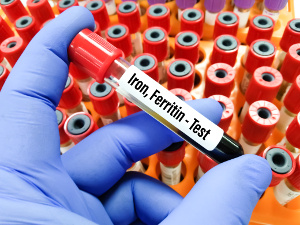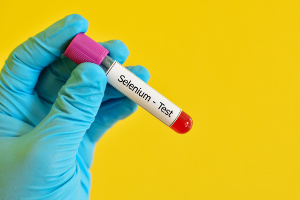afterLoad (456.3KB) (450μs)
afterInitialise (1.27MB) (42.58ms)
afterRoute (827.66KB) (15.42ms)
beforeRenderComponent com_content (35.2KB) (4.91ms)
Before Access::preloadComponents (all components) (67.27KB) (371μs)
After Access::preloadComponents (all components) (98.07KB) (2.69ms)
Before Access::preloadPermissions (com_content) (1.6KB) (12μs)
After Access::preloadPermissions (com_content) (3.29MB) (34.13ms)
Before Access::getAssetRules (id:62 name:com_content.category.20) (130.65KB) (115μs)
After Access::getAssetRules (id:62 name:com_content.category.20) (7.38KB) (51μs)
Before Access::getAssetRules (id:8 name:com_content) (51.77KB) (46.89ms)
After Access::getAssetRules (id:8 name:com_content) (6.17KB) (27μs)
afterRenderComponent com_content (1.46MB) (236ms)
afterDispatch (32.39KB) (4.11ms)
beforeRenderRawModule mod_articles_category (READ MORE...) (398.66KB) (13.03ms)
afterRenderRawModule mod_articles_category (READ MORE...) (72KB) (267ms)
beforeRenderRawModule mod_custom (BOOST YOUR IMMUNE DEFENSE) (6.45KB) (26μs)
afterRenderRawModule mod_custom (BOOST YOUR IMMUNE DEFENSE) (4.42KB) (186μs)
beforeRenderRawModule mod_articles_latest (Latest news) (976B) (12μs)
afterRenderRawModule mod_articles_latest (Latest news) (23.48KB) (125ms)
beforeRenderRawModule mod_tags_popular (Search) (2.09KB) (22μs)
afterRenderRawModule mod_tags_popular (Search) (28.08KB) (91.79ms)
beforeRenderRawModule mod_custom (the Vitamin and Mineral Guide) (960B) (24μs)
afterRenderRawModule mod_custom (the Vitamin and Mineral Guide) (1.02KB) (40μs)
beforeRenderRawModule mod_custom (Weight loss that works) (736B) (11μs)
afterRenderRawModule mod_custom (Weight loss that works) (928B) (19μs)
beforeRenderRawModule mod_custom (Get additionel and more detailed knowledge ) (752B) (9μs)
afterRenderRawModule mod_custom (Get additionel and more detailed knowledge ) (944B) (16μs)
beforeRenderRawModule mod_custom (Q10 goes by many names) (736B) (8μs)
afterRenderRawModule mod_custom (Q10 goes by many names) (928B) (16μs)
beforeRenderRawModule mod_custom (Check this before you buy a Q10 product) (752B) (8μs)
afterRenderRawModule mod_custom (Check this before you buy a Q10 product) (944B) (15μs)
beforeRenderRawModule mod_custom (Are you taking supplements) (736B) (8μs)
afterRenderRawModule mod_custom (Are you taking supplements) (2.28KB) (16μs)
beforeRenderRawModule mod_custom (Antiaging) (720B) (8μs)
afterRenderRawModule mod_custom (Antiaging) (912B) (16μs)
beforeRenderRawModule mod_custom (Exercise) (720B) (7μs)
afterRenderRawModule mod_custom (Exercise) (912B) (15μs)
beforeRenderRawModule mod_custom (Useful Links) (720B) (7μs)
afterRenderRawModule mod_custom (Useful Links) (1.02KB) (16μs)
beforeRenderModule mod_articles_category (READ MORE...) (268.2KB) (4.05ms)
afterRenderModule mod_articles_category (READ MORE...) (1.25KB) (56μs)
beforeRenderModule mod_custom (BOOST YOUR IMMUNE DEFENSE) (6.81KB) (13μs)
afterRenderModule mod_custom (BOOST YOUR IMMUNE DEFENSE) (1.28KB) (23μs)
beforeRenderModule mod_articles_latest (Latest news) (592B) (11μs)
afterRenderModule mod_articles_latest (Latest news) (1.27KB) (19μs)
beforeRenderModule mod_tags_popular (Search) (1.73KB) (11μs)
afterRenderModule mod_tags_popular (Search) (1.27KB) (17μs)
beforeRenderModule mod_custom (the Vitamin and Mineral Guide) (1.31KB) (9μs)
afterRenderModule mod_custom (the Vitamin and Mineral Guide) (1.28KB) (17μs)
beforeRenderModule mod_custom (Weight loss that works) (336B) (8μs)
afterRenderModule mod_custom (Weight loss that works) (1.27KB) (17μs)
beforeRenderModule mod_custom (Get additionel and more detailed knowledge ) (368B) (8μs)
afterRenderModule mod_custom (Get additionel and more detailed knowledge ) (1.3KB) (17μs)
beforeRenderModule mod_custom (Q10 goes by many names) (336B) (8μs)
afterRenderModule mod_custom (Q10 goes by many names) (1.27KB) (1.03ms)
beforeRenderModule mod_custom (Check this before you buy a Q10 product) (352B) (10μs)
afterRenderModule mod_custom (Check this before you buy a Q10 product) (1.28KB) (21μs)
beforeRenderModule mod_custom (Are you taking supplements) (352B) (30μs)
afterRenderModule mod_custom (Are you taking supplements) (1.28KB) (21μs)
beforeRenderModule mod_custom (Antiaging) (336B) (8μs)
afterRenderModule mod_custom (Antiaging) (1.27KB) (18μs)
beforeRenderModule mod_custom (Exercise) (336B) (8μs)
afterRenderModule mod_custom (Exercise) (1.25KB) (17μs)
beforeRenderModule mod_custom (Useful Links) (336B) (8μs)
afterRenderModule mod_custom (Useful Links) (3.77KB) (17μs)
beforeRenderRawModule mod_menu (Main Menu - English) (37.51KB) (704μs)
afterRenderRawModule mod_menu (Main Menu - English) (190.16KB) (3.46ms)
beforeRenderModule mod_menu (Main Menu - English) (720B) (4μs)
afterRenderModule mod_menu (Main Menu - English) (4.86KB) (49μs)
beforeRenderRawModule mod_languages (Sprogskift) (3.94KB) (16μs)
afterRenderRawModule mod_languages (Sprogskift) (21.65KB) (2.73ms)
beforeRenderModule mod_languages (Sprogskift) (720B) (5μs)
afterRenderModule mod_languages (Sprogskift) (5.31KB) (19μs)
beforeRenderRawModule mod_finder () (6.34KB) (10μs)
afterRenderRawModule mod_finder () (128.59KB) (4.52ms)
beforeRenderModule mod_finder () (704B) (5μs)
afterRenderModule mod_finder () (3.29KB) (31μs)
beforeRenderRawModule mod_custom () (6.62KB) (135μs)
afterRenderRawModule mod_custom () (30.89KB) (1.91ms)
beforeRenderModule mod_custom () (704B) (5μs)
afterRenderModule mod_custom () (1.23KB) (42μs)
beforeRenderRawModule mod_menu (Main Menu - English) (5.07KB) (95μs)
afterRenderRawModule mod_menu (Main Menu - English) (6.3KB) (723μs)
beforeRenderModule mod_menu (Main Menu - English) (720B) (3μs)
afterRenderModule mod_menu (Main Menu - English) (1.25KB) (39μs)
beforeRenderRawModule mod_languages (Sprogskift Mobil) (912B) (15μs)
afterRenderRawModule mod_languages (Sprogskift Mobil) (3.89KB) (1.62ms)
beforeRenderModule mod_languages (Sprogskift Mobil) (720B) (5μs)
afterRenderModule mod_languages (Sprogskift Mobil) (1.27KB) (29μs)
beforeRenderRawModule mod_finder () (2.3KB) (10μs)
afterRenderRawModule mod_finder () (6.29KB) (1.04ms)
beforeRenderModule mod_finder () (704B) (4μs)
afterRenderModule mod_finder () (1.23KB) (39μs)
beforeRenderRawModule mod_custom () (8.66KB) (174μs)
afterRenderRawModule mod_custom () (904B) (127μs)
beforeRenderModule mod_custom () (704B) (3μs)
afterRenderModule mod_custom () (2.43KB) (23μs)
beforeRenderRawModule mod_custom () (688B) (136μs)
afterRenderRawModule mod_custom () (896B) (1.15ms)
beforeRenderModule mod_custom () (704B) (4μs)
afterRenderModule mod_custom () (2.71KB) (26μs)
afterRender (301.26KB) (17.72ms)
| 1 x afterRenderRawModule mod_articles_category (READ MORE...) (72KB) (28.81%) | 267.30ms |
| 1 x afterRenderComponent com_content (1.46MB) (25.41%) | 235.78ms |
| 1 x afterRenderRawModule mod_articles_latest (Latest news) (23.48KB) (13.49%) | 125.20ms |
| 1 x afterRenderRawModule mod_tags_popular (Search) (28.08KB) (9.89%) | 91.79ms |
| 1 x Before Access::getAssetRules (id:8 name:com_content) (51.77KB) (5.05%) | 46.89ms |
| 1 x afterInitialise (1.27MB) (4.59%) | 42.58ms |
| 1 x After Access::preloadPermissions (com_content) (3.29MB) (3.68%) | 34.13ms |
| 1 x afterRender (301.26KB) (1.91%) | 17.72ms |
| 1 x afterRoute (827.66KB) (1.66%) | 15.42ms |
| 1 x beforeRenderRawModule mod_articles_category (READ MORE...) (398.66KB) (1.4%) | 13.03ms |
| 1 x beforeRenderComponent com_content (35.2KB) (0.53%) | 4.91ms |
| 1 x afterRenderRawModule mod_finder () (128.59KB) (0.49%) | 4.52ms |
| 1 x afterDispatch (32.39KB) (0.44%) | 4.11ms |
| 1 x beforeRenderModule mod_articles_category (READ MORE...) (268.2KB) (0.44%) | 4.05ms |
| 1 x afterRenderRawModule mod_menu (Main Menu - English) (190.16KB) (0.37%) | 3.46ms |
| 1 x afterRenderRawModule mod_languages (Sprogskift) (21.65KB) (0.29%) | 2.73ms |
| 1 x After Access::preloadComponents (all components) (98.07KB) (0.29%) | 2.69ms |
| 1 x afterRenderRawModule mod_custom () (30.89KB) (0.21%) | 1.91ms |
| 1 x afterRenderRawModule mod_languages (Sprogskift Mobil) (3.89KB) (0.17%) | 1.62ms |
| 1 x afterRenderRawModule mod_custom () (896B) (0.12%) | 1.15ms |
| 1 x afterRenderRawModule mod_finder () (6.29KB) (0.11%) | 1.04ms |
| 1 x afterRenderModule mod_custom (Q10 goes by many names) (1.27KB) (0.11%) | 1.03ms |
| 1 x afterRenderRawModule mod_menu (Main Menu - English) (6.3KB) (0.08%) | 723μs |
| 1 x beforeRenderRawModule mod_menu (Main Menu - English) (37.51KB) (0.08%) | 704μs |
| 1 x afterLoad (456.3KB) (0.05%) | 450μs |
| 1 x Before Access::preloadComponents (all components) (67.27KB) (0.04%) | 371μs |
| 1 x afterRenderRawModule mod_custom (BOOST YOUR IMMUNE DEFENSE) (4.42KB) (0.02%) | 186μs |
| 1 x beforeRenderRawModule mod_custom () (8.66KB) (0.02%) | 174μs |
| 1 x beforeRenderRawModule mod_custom () (688B) (0.01%) | 136μs |
| 1 x beforeRenderRawModule mod_custom () (6.62KB) (0.01%) | 135μs |
| 1 x afterRenderRawModule mod_custom () (904B) (0.01%) | 127μs |
| 1 x Before Access::getAssetRules (id:62 name:com_content.category.20) (130.65KB) (0.01%) | 115μs |
| 1 x beforeRenderRawModule mod_menu (Main Menu - English) (5.07KB) (0.01%) | 95μs |
| 1 x afterRenderModule mod_articles_category (READ MORE...) (1.25KB) (0.01%) | 56μs |
| 1 x After Access::getAssetRules (id:62 name:com_content.category.20) (7.38KB) (0.01%) | 51μs |
| 1 x afterRenderModule mod_menu (Main Menu - English) (4.86KB) (0.01%) | 49μs |
| 1 x afterRenderModule mod_custom () (1.23KB) (0%) | 42μs |
| 1 x afterRenderRawModule mod_custom (the Vitamin and Mineral Guide) (1.02KB) (0%) | 40μs |
| 1 x afterRenderModule mod_menu (Main Menu - English) (1.25KB) (0%) | 39μs |
| 1 x afterRenderModule mod_finder () (1.23KB) (0%) | 39μs |
| 1 x afterRenderModule mod_finder () (3.29KB) (0%) | 31μs |
| 1 x beforeRenderModule mod_custom (Are you taking supplements) (352B) (0%) | 30μs |
| 1 x afterRenderModule mod_languages (Sprogskift Mobil) (1.27KB) (0%) | 29μs |
| 1 x After Access::getAssetRules (id:8 name:com_content) (6.17KB) (0%) | 27μs |
| 1 x beforeRenderRawModule mod_custom (BOOST YOUR IMMUNE DEFENSE) (6.45KB) (0%) | 26μs |
| 1 x afterRenderModule mod_custom () (2.71KB) (0%) | 26μs |
| 1 x beforeRenderRawModule mod_custom (the Vitamin and Mineral Guide) (960B) (0%) | 24μs |
| 1 x afterRenderModule mod_custom (BOOST YOUR IMMUNE DEFENSE) (1.28KB) (0%) | 23μs |
| 1 x afterRenderModule mod_custom () (2.43KB) (0%) | 23μs |
| 1 x beforeRenderRawModule mod_tags_popular (Search) (2.09KB) (0%) | 22μs |
| 1 x afterRenderModule mod_custom (Check this before you buy a Q10 product) (1.28KB) (0%) | 21μs |
| 1 x afterRenderModule mod_custom (Are you taking supplements) (1.28KB) (0%) | 21μs |
| 1 x afterRenderModule mod_articles_latest (Latest news) (1.27KB) (0%) | 19μs |
| 1 x afterRenderModule mod_languages (Sprogskift) (5.31KB) (0%) | 19μs |
| 1 x afterRenderRawModule mod_custom (Weight loss that works) (928B) (0%) | 19μs |
| 1 x afterRenderModule mod_custom (Antiaging) (1.27KB) (0%) | 18μs |
| 1 x afterRenderModule mod_custom (Exercise) (1.25KB) (0%) | 17μs |
| 1 x afterRenderModule mod_tags_popular (Search) (1.27KB) (0%) | 17μs |
| 1 x afterRenderModule mod_custom (the Vitamin and Mineral Guide) (1.28KB) (0%) | 17μs |
| 1 x afterRenderModule mod_custom (Weight loss that works) (1.27KB) (0%) | 17μs |
| 1 x afterRenderModule mod_custom (Get additionel and more detailed knowledge ) (1.3KB) (0%) | 17μs |
| 1 x afterRenderModule mod_custom (Useful Links) (3.77KB) (0%) | 17μs |
| 1 x afterRenderRawModule mod_custom (Get additionel and more detailed knowledge ) (944B) (0%) | 16μs |
| 1 x afterRenderRawModule mod_custom (Q10 goes by many names) (928B) (0%) | 16μs |
| 1 x afterRenderRawModule mod_custom (Are you taking supplements) (2.28KB) (0%) | 16μs |
| 1 x afterRenderRawModule mod_custom (Antiaging) (912B) (0%) | 16μs |
| 1 x afterRenderRawModule mod_custom (Useful Links) (1.02KB) (0%) | 16μs |
| 1 x beforeRenderRawModule mod_languages (Sprogskift) (3.94KB) (0%) | 16μs |
| 1 x afterRenderRawModule mod_custom (Check this before you buy a Q10 product) (944B) (0%) | 15μs |
| 1 x afterRenderRawModule mod_custom (Exercise) (912B) (0%) | 15μs |
| 1 x beforeRenderRawModule mod_languages (Sprogskift Mobil) (912B) (0%) | 15μs |
| 1 x beforeRenderModule mod_custom (BOOST YOUR IMMUNE DEFENSE) (6.81KB) (0%) | 13μs |
| 3 x beforeRenderModule mod_custom () (704B) (0%) | 12μs |
| 1 x Before Access::preloadPermissions (com_content) (1.6KB) (0%) | 12μs |
| 1 x beforeRenderRawModule mod_articles_latest (Latest news) (976B) (0%) | 12μs |
| 1 x beforeRenderRawModule mod_custom (Weight loss that works) (736B) (0%) | 11μs |
| 1 x beforeRenderModule mod_articles_latest (Latest news) (592B) (0%) | 11μs |
| 1 x beforeRenderModule mod_tags_popular (Search) (1.73KB) (0%) | 11μs |
| 1 x beforeRenderModule mod_custom (Check this before you buy a Q10 product) (352B) (0%) | 10μs |
| 1 x beforeRenderRawModule mod_finder () (6.34KB) (0%) | 10μs |
| 1 x beforeRenderRawModule mod_finder () (2.3KB) (0%) | 10μs |
| 1 x beforeRenderRawModule mod_custom (Get additionel and more detailed knowledge ) (752B) (0%) | 9μs |
| 1 x beforeRenderModule mod_custom (the Vitamin and Mineral Guide) (1.31KB) (0%) | 9μs |
| 2 x beforeRenderModule mod_finder () (704B) (0%) | 9μs |
| 1 x beforeRenderRawModule mod_custom (Q10 goes by many names) (736B) (0%) | 8μs |
| 1 x beforeRenderRawModule mod_custom (Are you taking supplements) (736B) (0%) | 8μs |
| 1 x beforeRenderRawModule mod_custom (Antiaging) (720B) (0%) | 8μs |
| 1 x beforeRenderModule mod_custom (Weight loss that works) (336B) (0%) | 8μs |
| 1 x beforeRenderModule mod_custom (Get additionel and more detailed knowledge ) (368B) (0%) | 8μs |
| 1 x beforeRenderRawModule mod_custom (Check this before you buy a Q10 product) (752B) (0%) | 8μs |
| 1 x beforeRenderModule mod_custom (Q10 goes by many names) (336B) (0%) | 8μs |
| 1 x beforeRenderModule mod_custom (Antiaging) (336B) (0%) | 8μs |
| 1 x beforeRenderModule mod_custom (Exercise) (336B) (0%) | 8μs |
| 1 x beforeRenderModule mod_custom (Useful Links) (336B) (0%) | 8μs |
| 2 x beforeRenderModule mod_menu (Main Menu - English) (720B) (0%) | 7μs |
| 1 x beforeRenderRawModule mod_custom (Exercise) (720B) (0%) | 7μs |
| 1 x beforeRenderRawModule mod_custom (Useful Links) (720B) (0%) | 7μs |
| 1 x beforeRenderModule mod_languages (Sprogskift) (720B) (0%) | 5μs |
| 1 x beforeRenderModule mod_languages (Sprogskift Mobil) (720B) (0%) | 5μs |
 Vitamin B12 is important for the development and function of our central nervous system. In the past decades, science has also found similarities between sclerosis and the neurological symptoms that occur in people who lack vitamin B12. In a new study that is published in Cell Reports, scientists have found the molecular relation between vitamin B12 and the function of supportive brain cells.
Vitamin B12 is important for the development and function of our central nervous system. In the past decades, science has also found similarities between sclerosis and the neurological symptoms that occur in people who lack vitamin B12. In a new study that is published in Cell Reports, scientists have found the molecular relation between vitamin B12 and the function of supportive brain cells.











 Lack of
Lack of 
 The number of older people is increasing rapidly, which means more and more people suffer from different types of dementia.
The number of older people is increasing rapidly, which means more and more people suffer from different types of dementia. 
 Cholesterol is an essential compound with many different functions. However, it can also turn into a potentially dangerous substance if it oxidizes and is embedded in the blood vessel walls. This oxidative process is what eventually leads to atherosclerosis. The trace element selenium protects against atherosclerosis because of its antioxidant properties and because of other mechanisms, according to a review article published in Biomedicine. This is highly relevant in our part of the world where cardiovascular disease is the leading cause of death, and where
Cholesterol is an essential compound with many different functions. However, it can also turn into a potentially dangerous substance if it oxidizes and is embedded in the blood vessel walls. This oxidative process is what eventually leads to atherosclerosis. The trace element selenium protects against atherosclerosis because of its antioxidant properties and because of other mechanisms, according to a review article published in Biomedicine. This is highly relevant in our part of the world where cardiovascular disease is the leading cause of death, and where  Migraine headaches, a problem that affects far more women than men, is one of the diseases that costs most sick days, and there is no medical treatment that can cure the underlying cause. What we eat appears to play a major role, which is because foods such as matured cheese, chocolate, caffeinated beverages, red wine, and monosodium glutamate (MSG) can trigger migraines and headaches. Also, eating an unbalanced diet that is low in specific nutrients such as magnesium, B vitamins, and Q10 can disrupt certain metabolic processes, thereby setting off an attack. This was seen in a new study that is published in Frontiers in Nutrition.
Migraine headaches, a problem that affects far more women than men, is one of the diseases that costs most sick days, and there is no medical treatment that can cure the underlying cause. What we eat appears to play a major role, which is because foods such as matured cheese, chocolate, caffeinated beverages, red wine, and monosodium glutamate (MSG) can trigger migraines and headaches. Also, eating an unbalanced diet that is low in specific nutrients such as magnesium, B vitamins, and Q10 can disrupt certain metabolic processes, thereby setting off an attack. This was seen in a new study that is published in Frontiers in Nutrition.
